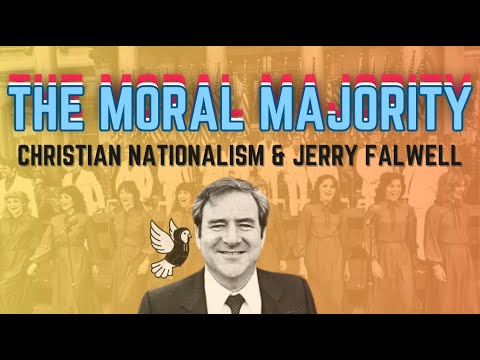Summary
The video explores the origins, rise, and lasting impact of the Moral Majority, a conservative Christian political movement founded in the late 1970s by Reverend Jerry Falwell. It traces how the Moral Majority emerged as a reaction to the social and cultural upheavals of the 1960s and 70s, including the civil rights movement, feminism, LGBTQ+ visibility, and secularism, which many conservative Christians viewed as a moral decline. Falwell and his associates recognized the untapped political potential of evangelical Christians, many of whom were not politically active, and sought to organize them into a powerful voting bloc to restore what they saw as traditional Christian values in America.
The Moral Majority was not merely a loose coalition of religious conservatives but a highly organized, strategic political force that mobilized millions of voters, built extensive grassroots networks, and leveraged media and lobbying to influence elections and public policy. It championed causes such as opposition to abortion, feminism, gay rights, secular education, pornography, and the promotion of school prayer and creationism. The movement aligned itself closely with the Republican Party and played a significant role in the election of Ronald Reagan in 1980.
The video highlights how the Moral Majority blurred the lines between religion and politics, transforming Christian faith into a political identity tied to conservative ideology. This fusion pressured individuals within evangelical communities to conform politically as a demonstration of faith, often equating political dissent with spiritual betrayal. Their strategy heavily relied on fear-mongering about moral decay, which created a culture of anxiety, suspicion, and exclusion.
Additionally, the Moral Majority’s tax-exempt nonprofit status allowed it to raise large sums of money while engaging in politically charged activities, raising ethical and legal questions about the separation of church and state. Despite disbanding in 1989 as an organization, its ideals, rhetoric, and political influence persist today in new forms and groups, such as Focus on the Family and Moms for Liberty. The video argues that current culture wars, political rhetoric, and Christian nationalist movements are direct continuations of the Moral Majority’s legacy, merely updated for today’s digital and social media landscape.
The video concludes by emphasizing the importance of understanding the Moral Majority’s history to grasp the present-day interplay of religion and politics in the United States and invites viewers to reflect on how this legacy shapes American political and cultural life.
Originally posted 2025-08-23 12:04:00.

